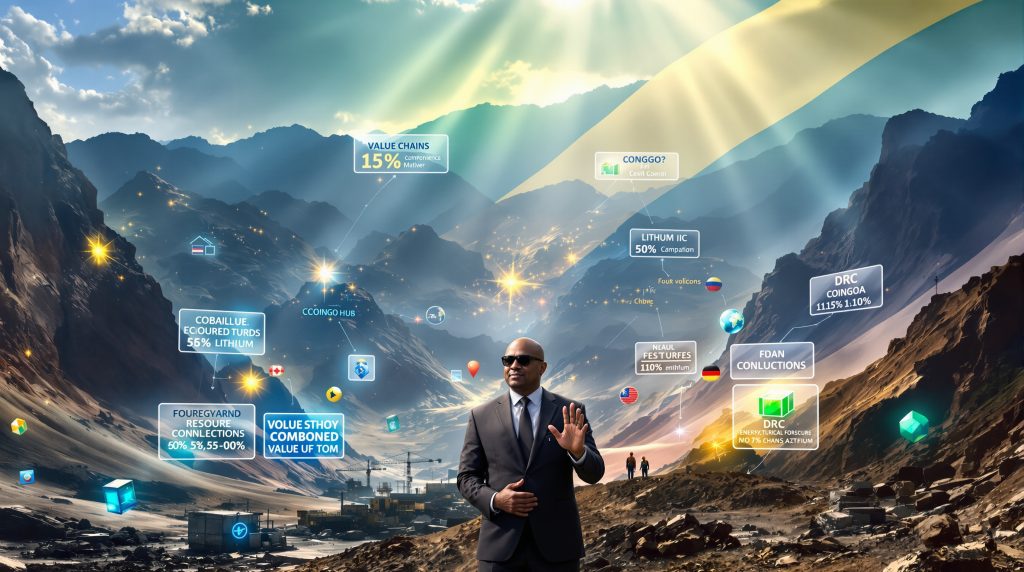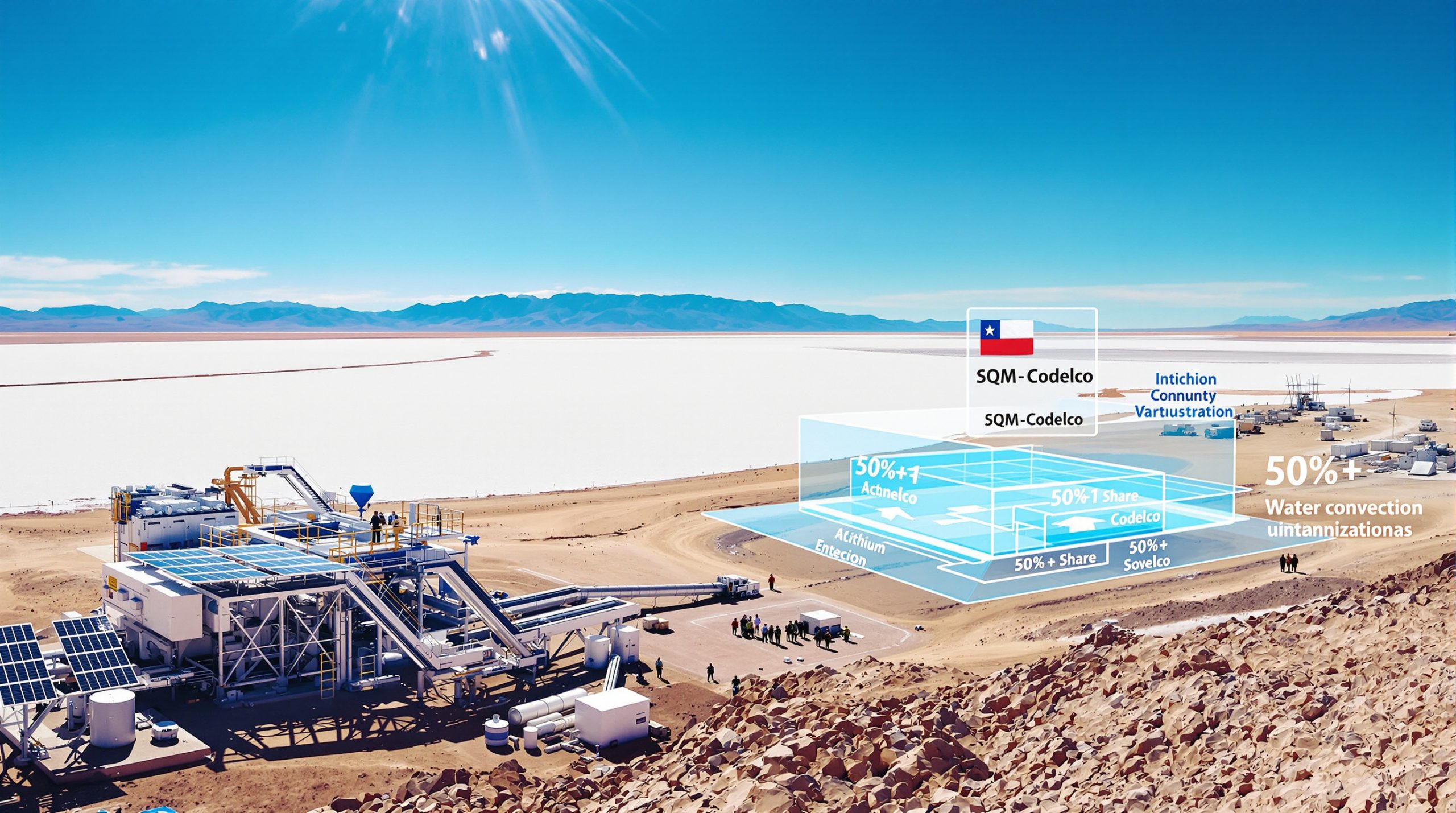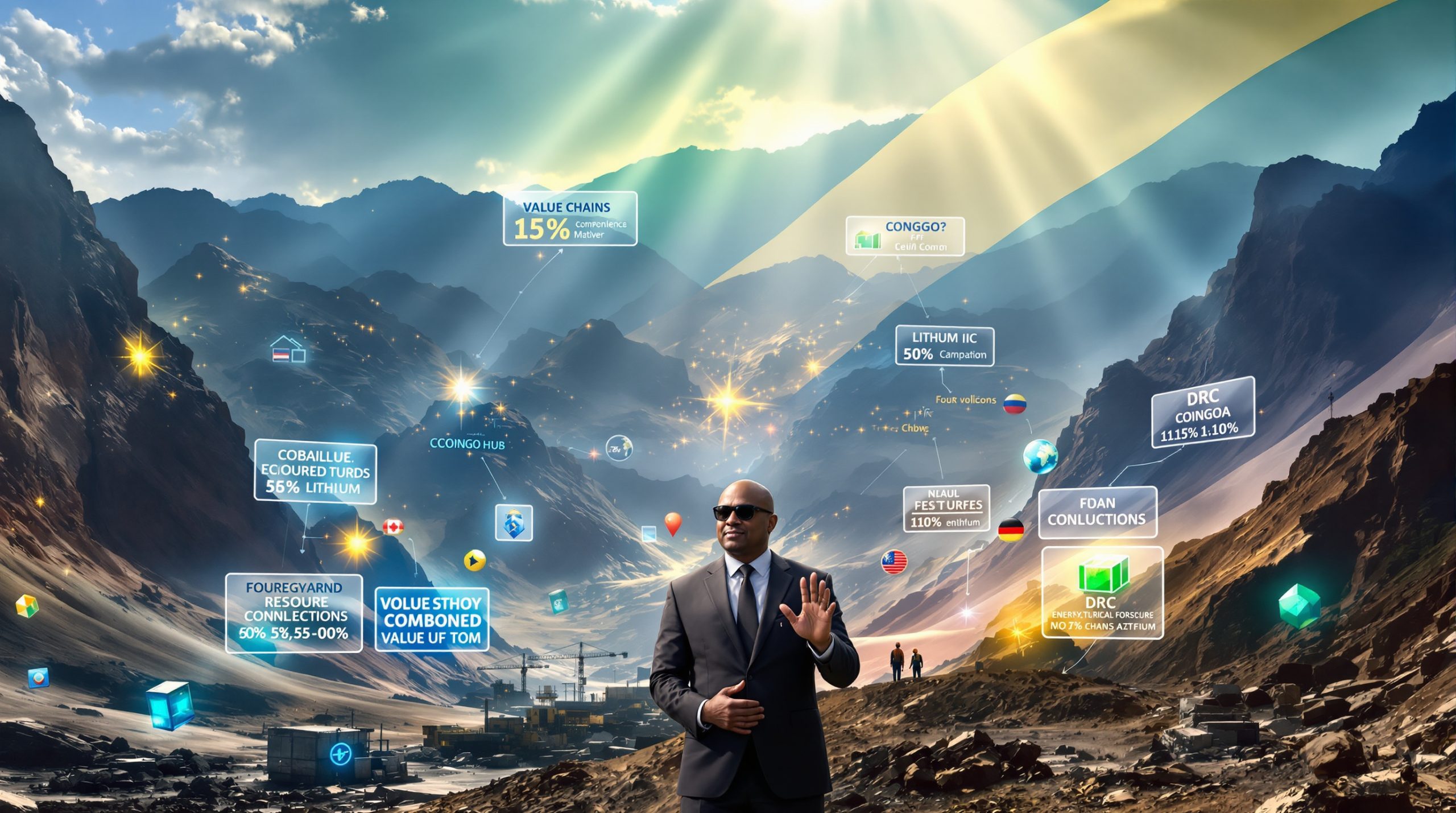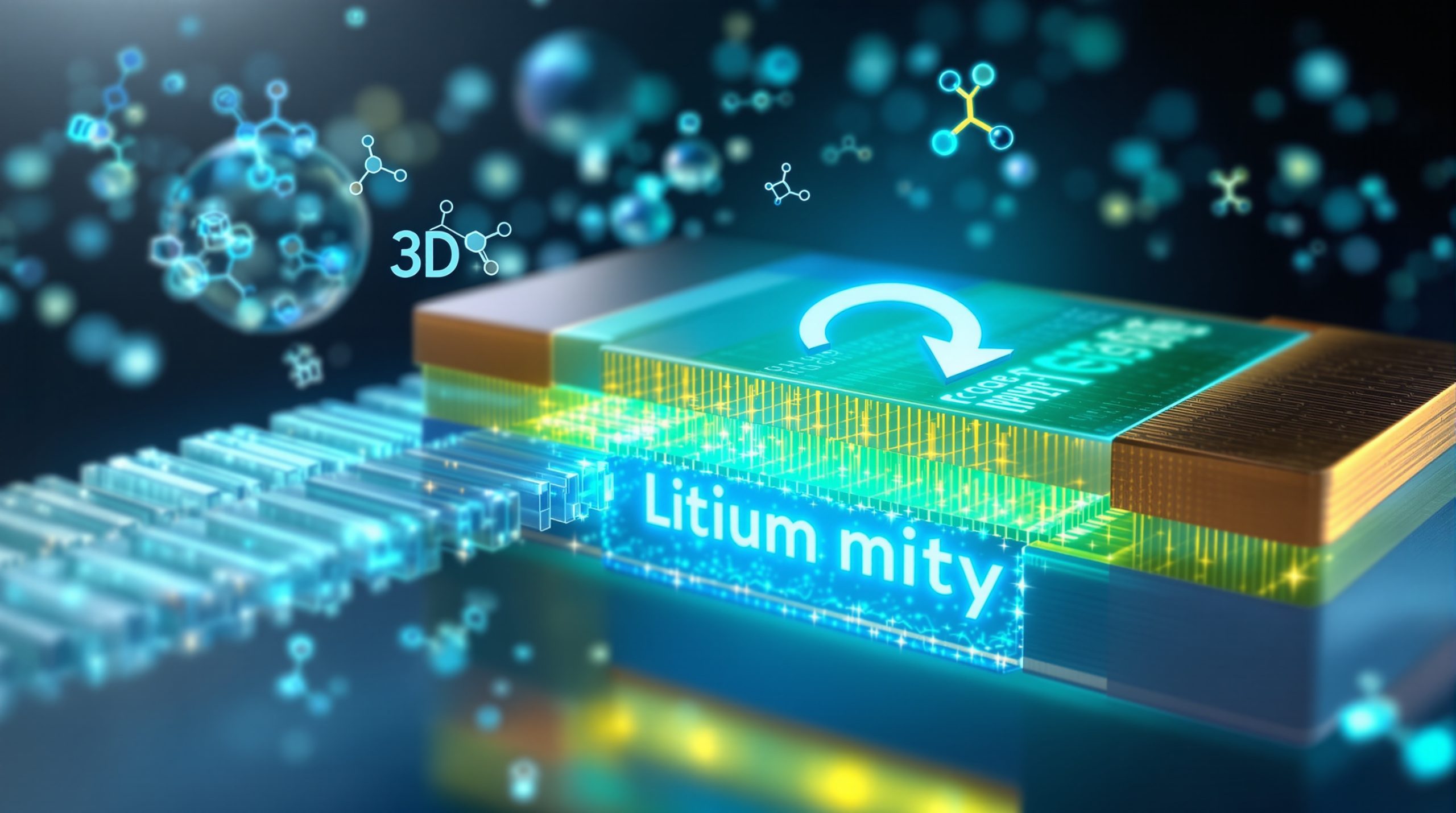Congo's Stance on Mineral Resources: Sovereignty Over Auction
The Democratic Republic of Congo (DRC) has taken a firm position on maintaining sovereignty over its vast mineral resources, with President Felix Tshisekedi explicitly rejecting the concept of "auctioning" these valuable assets to foreign powers. This stance comes amid complex negotiations with the United States and other international partners seeking access to Congo's critical minerals energy transition.
"It does not mean that we will auction our mineral resources," Tshisekedi stated clearly during recent discussions about international partnerships, signaling Congo's intention to maintain control over its natural wealth while still fostering strategic relationships with global powers.
Why is Congo Protecting its Mineral Wealth from Foreign Control?
The DRC's rich mineral deposits represent both an economic opportunity and a sovereignty challenge. As global demand for critical minerals increases, particularly those needed for renewable energy and digital technologies, Congo's leadership has prioritized national interests over foreign extraction models.
President Tshisekedi's position reflects a growing trend among resource-rich nations to exercise greater control over their natural endowments, ensuring that mineral wealth contributes to domestic development rather than primarily benefiting foreign entities.
This protection strategy comes amid increasing global competition for strategic resources. As the transition to green energy accelerates, countries like the DRC with substantial reserves of battery metals find themselves at the center of international attention and investment interest.
What's Behind Congo's Resource Protection Strategy?
Congo's Mineral Wealth in Global Context
The DRC possesses some of the world's most significant deposits of critical minerals essential to modern technology and green energy transitions. The country's mineral portfolio includes vast reserves of cobalt, copper, tantalum, gold, and lithium – all increasingly vital to global supply chains.
These resources place Congo in a strategically important position within global mineral markets. With technology manufacturers and green energy developers seeking reliable supplies of these materials, Congo's resource policies have far-reaching implications for international trade and industrial development.
The country's geological abundance creates both opportunity and responsibility. While Congo could benefit economically from rapid resource extraction, such approaches have historically failed to deliver lasting prosperity to the Congolese people.
The Sovereignty Declaration
President Tshisekedi has articulated a clear vision for Congo's resources that prioritizes national interests while still engaging with international partners. Rather than following traditional resource extraction models, Congo is pursuing partnerships that respect its sovereignty and contribute to domestic development.
"We will, as part of this partnership, be working in the development of the mining sectors, developing the value chain, developing infrastructure with a particular emphasis on energy," Tshisekedi explained when discussing potential partnerships with the United States.
This declaration represents a significant shift from past resource governance approaches that often prioritized foreign investment and raw material export over domestic development and value retention.
Balancing Partnerships with National Interests
Congo is pursuing a nuanced approach to international partnerships that seeks to balance attracting investment with protecting national sovereignty. Key elements of this strategy include:
- Developing complete mineral value chains within Congo rather than merely exporting raw materials
- Focusing on energy and transportation infrastructure development to support mining and processing
- Creating regulatory frameworks that ensure fair benefits for the Congolese people
- Establishing partnerships that respect Congo's control over resource development decisions
This balanced approach aims to avoid the pitfalls of both resource nationalism (which can deter valuable investment) and unrestricted foreign access (which can lead to exploitation without adequate domestic benefits).
How Does This Affect US-Congo Relations?
The Peace Process Context
Tshisekedi's statements on resource sovereignty come against the backdrop of US-mediated peace negotiations between the DRC and Rwanda aimed at ending the conflict with M23 rebels in eastern Congo. On June 27, 2025, a peace deal was signed with a September implementation deadline.
While expressing appreciation for US President Trump's mediation efforts, Tshisekedi made it clear that diplomatic support does not translate to privileged access to Congo's mineral wealth. This distinction is important as the United States seeks to secure critical mineral supplies for its clean energy and technology sectors.
The peace process itself is closely connected to resource issues, as conflict in eastern Congo directly impacts mineral-rich areas that are essential to both domestic development and international supply chains.
Existing Tensions and Challenges
Despite the June peace agreement, Tshisekedi has indicated that Rwanda continues to support M23 rebels in eastern Congo. "Rwanda pretended to withdraw their troops, but actually, they are increasing their support to M23," he stated, highlighting the complex security challenges that continue to affect resource-rich regions.
The ongoing conflict has claimed thousands of lives in 2025 alone, according to US assessments, creating humanitarian concerns alongside resource governance challenges. This instability directly impacts mining operations and complicates Congo's ability to implement its sovereignty-focused resource strategy.
These security challenges highlight the interconnected nature of peace, governance, and resource management in the DRC. Effective resource sovereignty requires a level of stability that remains elusive in parts of the country.
Strategic Partnership Possibilities
Despite these challenges, Congo is actively negotiating a strategic partnership with the United States similar to one already established with China. These negotiations focus on developing mining sectors, value chains, and infrastructure improvements with particular emphasis on energy development.
This potential US partnership represents an important diversification of Congo's international relationships. By engaging with both China and the United States, Congo can potentially leverage competition between these powers to secure more favorable terms while maintaining its resource sovereignty.
The structure of these partnerships will likely serve as a template for Congo's approach to resource governance in the coming years, establishing precedents for how foreign entities can participate in the country's mineral sector while respecting national sovereignty.
What Changes Are Coming to Congo's Mineral Export Policies?
From Bans to Strategic Management
Congo is evolving its approach to mineral exports, moving from outright restrictions toward more sophisticated regulatory frameworks that balance domestic processing with controlled exports. This policy evolution reflects a maturing approach to resource governance that seeks to maximize domestic benefits while maintaining international market connections.
Key elements of this strategic management approach include:
- Regulated export quotas that allow for some raw material sales while encouraging domestic processing
- Quality control standards that ensure Congo's exports command premium prices
- Traceability requirements that combat illegal mining and resource smuggling
- Targeted incentives for domestic processing and manufacturing activities
This nuanced approach represents a significant advancement from the binary choice between unrestricted exports and complete bans, providing Congo with more policy tools to achieve its development objectives.
Value Chain Development Priorities
Central to Congo's resource strategy is the development of complete mineral value chains within the country. Rather than exporting raw materials for processing elsewhere, Congo aims to capture more of the value associated with its mineral wealth through domestic processing, manufacturing, and related activities.
Key value chain priorities include:
- Refining and processing facilities for primary minerals like cobalt and copper
- Component manufacturing for battery and electronics industries
- Technical training programs to build domestic expertise in mineral processing
- Research and development capabilities focused on mineral applications and technologies
By developing these capabilities, Congo can transform its role in global supply chains from a mere supplier of raw materials to a producer of higher-value intermediate and finished products. Furthermore, these initiatives create substantial mineral beneficiation opportunities that could boost the country's economic development.
What Does This Mean for Global Mineral Supply Chains?
Implications for Critical Mineral Markets
Congo's resource sovereignty stance will significantly impact global markets for critical minerals, particularly those essential for clean energy technologies and digital devices. As the world's largest source of several strategic metals, Congo's policies directly influence:
- Supply availability for battery manufacturers and technology companies
- Price dynamics for critical minerals used in clean energy applications
- Investment patterns in mineral exploration and development globally
- International standards for responsible sourcing and supply chain management
These market impacts extend beyond simple commodity considerations to influence geopolitical relationships, environmental practices, and social development outcomes connected to mineral supply chains. The tariffs impact markets in complex ways that are still being assessed by international analysts.
Reshaping International Investment Approaches
Foreign investors and mining companies must adapt to Congo's more assertive resource governance by developing projects that align with the country's development priorities. This adaptation requires:
- Designing operations that include substantial local processing and value addition
- Contributing to infrastructure development beyond immediate mine requirements
- Engaging meaningfully with local communities affected by mining operations
- Accepting more balanced profit-sharing arrangements that benefit the Congolese people
This shift represents a fundamental change in the power dynamics between resource-rich countries and international mining interests, with potential implications for investment patterns across the mining industry evolution.
Potential for New Resource Nationalism Models
Congo's approach may inspire other resource-rich nations to adopt similar policies that prioritize sovereignty and domestic development over traditional extractive models. This potential "demonstration effect" could reshape global mineral supply chains by:
- Encouraging more processing and manufacturing in resource-producing countries
- Reducing the dominance of traditional mining powers in global mineral markets
- Creating new centers of expertise and production in previously extraction-focused regions
- Establishing new norms for how resource wealth contributes to national development
Such changes would represent a significant evolution in global resource governance with far-reaching implications for international trade, industrial development, and geopolitical relationships.
What Are the Prisoner Exchange Developments?
In parallel with resource governance discussions, progress is being made on humanitarian aspects of the peace process. Tshisekedi noted positive developments regarding a potential prisoner exchange between Congolese forces and M23 rebels.
"As a matter of fact, we are waiting for the Red Cross to give us a go ahead to proceed with the exchange of prisoners," Tshisekedi stated, indicating that the International Committee of the Red Cross will facilitate this exchange.
This humanitarian process represents an important confidence-building measure within the broader peace efforts, though significant challenges remain. M23 has demanded prisoner releases before peace talks can advance, while Congolese officials maintain that prisoners can only be released after a formal agreement is signed.
How Will Congo Balance Multiple International Partnerships?
The China Factor
Congo has already established a strategic partnership with China, which has invested heavily in the country's infrastructure and mining sectors. This existing relationship provides both a model and a counterbalance for potential new partnerships with the United States and other international actors.
The China-Congo partnership has delivered significant infrastructure development but has also faced criticism regarding terms, transparency, and implementation. These experiences likely inform Congo's approach to new partnerships, helping the country secure more favorable and balanced arrangements.
By maintaining relationships with both China and the United States, Congo gains leverage in negotiations while avoiding overdependence on any single international partner – an important consideration for protecting resource sovereignty. These strategic considerations are increasingly shaped by the broader US-China trade impact on global markets.
Multilateral Approach to Resource Development
Rather than aligning exclusively with any single foreign power, Congo is pursuing a multilateral approach that diversifies international partnerships while maintaining domestic control over resource decisions. This strategy:
- Creates competition among potential partners, potentially improving terms for Congo
- Provides access to diverse expertise, technologies, and markets
- Reduces vulnerability to pressure from any single international actor
- Allows for tailored partnerships focused on specific development priorities
This multilateral approach represents a sophisticated evolution in resource diplomacy that moves beyond simple extractive relationships toward more complex development partnerships.
What's Next for Congo's Mineral Resource Strategy?
Regulatory Framework Evolution
Congo's regulatory approach to mineral resources will likely continue to evolve as the country refines its governance model. Potential developments include:
- More sophisticated export quota systems designed to balance raw material exports with domestic processing
- Enhanced traceability requirements that combat illegal mining and resource smuggling
- Stricter environmental and social standards for mining operations
- Greater transparency in resource contracts and revenue management
These regulatory refinements would strengthen Congo's ability to implement its resource sovereignty vision while addressing legitimate concerns about governance, transparency, and environmental protection.
Infrastructure Development Focus
A key element of Congo's resource strategy involves developing the infrastructure necessary to support domestic processing and value addition. Priority areas include:
- Reliable electricity generation and transmission to power mining and processing operations
- Improved transportation networks for moving materials and finished products
- Technical education facilities to build local expertise in resource-related industries
- Digital infrastructure to support modern mining and manufacturing operations
This infrastructure focus recognizes that physical and institutional capacity constraints currently limit Congo's ability to capture more value from its mineral resources – a challenge that must be addressed for the resource sovereignty vision to succeed.
Long-term Vision for Resource-Based Development
Ultimately, Congo's stance reflects a long-term vision of using its mineral wealth as a foundation for broader economic development rather than as commodities to be auctioned to the highest bidder. This vision prioritizes:
- Sustainable development that benefits current and future generations
- Sovereignty over natural resources and development decisions
- Equitable distribution of benefits from resource extraction
- Environmental protection and responsible resource management
By maintaining this long-term perspective, Congo aims to avoid the "resource curse" that has affected many mineral-rich nations, instead using its natural endowments as a platform for genuine economic transformation and human development.
FAQs About Congo's Mineral Resource Position
Is Congo completely closing its mining sector to foreign investment?
No, Congo continues to welcome foreign investment but is seeking partnerships that respect its sovereignty and contribute to local development rather than simply extracting resources. The emphasis is on quality of investment and alignment with national development priorities rather than quantity of foreign capital.
How will Congo's stance affect global electric vehicle production?
As a major supplier of cobalt and other battery materials, Congo's policies will influence EV supply chains, potentially increasing costs in the short term. However, by encouraging more sustainable and ethical sourcing practices, these policies may ultimately strengthen EV supply chains while delivering more benefits to resource-producing communities.
What role does the ongoing conflict in eastern Congo play in resource management?
The conflict directly impacts mining regions and complicates governance, making peace a prerequisite for fully implementing Congo's resource development strategy. Security challenges in eastern Congo highlight the interconnected nature of governance, security, and resource management in the DRC.
How does Congo's approach compare to other resource-rich African nations?
Congo's stance represents a growing trend among African nations to assert greater control over natural resources, though each country's approach reflects its unique circumstances and priorities. This continental shift toward resource sovereignty could significantly reshape global mineral markets in the coming decades.
Will Congo's policies lead to higher prices for technology products?
While there may be short-term cost implications, Congo's focus on developing complete value chains could eventually lead to more stable and sustainable supply arrangements. By addressing governance and infrastructure challenges, these policies may ultimately improve supply reliability while delivering more equitable outcomes.
Ready to Spot the Next Major Mineral Discovery?
Discover why significant mineral discoveries can lead to exceptional market returns by exploring Discovery Alert's dedicated discoveries page, where our proprietary Discovery IQ model transforms complex mineral data into actionable, real-time alerts for ASX investors seeking a genuine market advantage.




